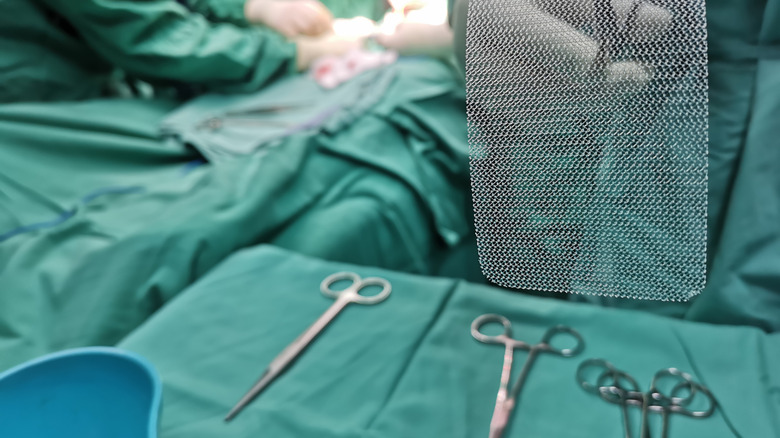What Happens If A Hernia Goes Untreated?
It's safe to say that most people know their bodies fairly well. Their dips, curves, and bumps are intimately familiar. So it's no surprise that people are keenly aware when a new lump shows up. This is especially true if the lump keeps growing or if the area around it starts to hurt. And if the lump hurts more when the person lifts something, a person may rightfully be tempted to seek medical advice. And, based on the symptoms as described by the Cleveland Clinic, it is very likely that such a person will be diagnosed with a hernia.
Hernias develop when part of an internal organ pushes through a weak spot between muscles, according to the Mayo Clinic. There are different types of hernias, each named for the location that the hernia can take place. As the Cleveland Clinic explains, there are eight types of hernias with four of them being far more common than the other four. In all eight types, however, the same treatment options are suggested. But what happens if someone wants to forgo treatment?
Untreated hernias can be fatal
The Cleveland Clinic says that hernia treatments vary depending on the type of hernia and the patient's specific needs. Some patients may need therapy while others are better off after a surgical intervention. In all cases, however, professional medical treatment is necessary. This is because hernias do not clear up on their own. And living with a hernia in the hopes that it will heal itself can lead to some very unfortunate side effects.
In some cases, untreated hernias can lead to obstruction or incarceration. This occurs when part of an intestine becomes trapped in the inguinal canal. Over time this obstruction leads to symptoms like nausea and vomiting, stomach pain, and a lump between the patient's legs that causes chronic pain.
Untreated hernias can also lead to a condition known as strangulation. This is a serious condition in which the herniated tissue is cut off from all blood supply. If a strangulated hernia is not treated within hours, the herniated tissue can die which can prove fatal. Warning signs usually happen suddenly, according to The British Hernia Centre. Someone with a hernia may suddenly find blood in their stool, feel extreme pain, or develop a burning sensation around the hernia. Ultimately it is better not to risk strangulation, and to seek hernia treatment sooner rather than later.


